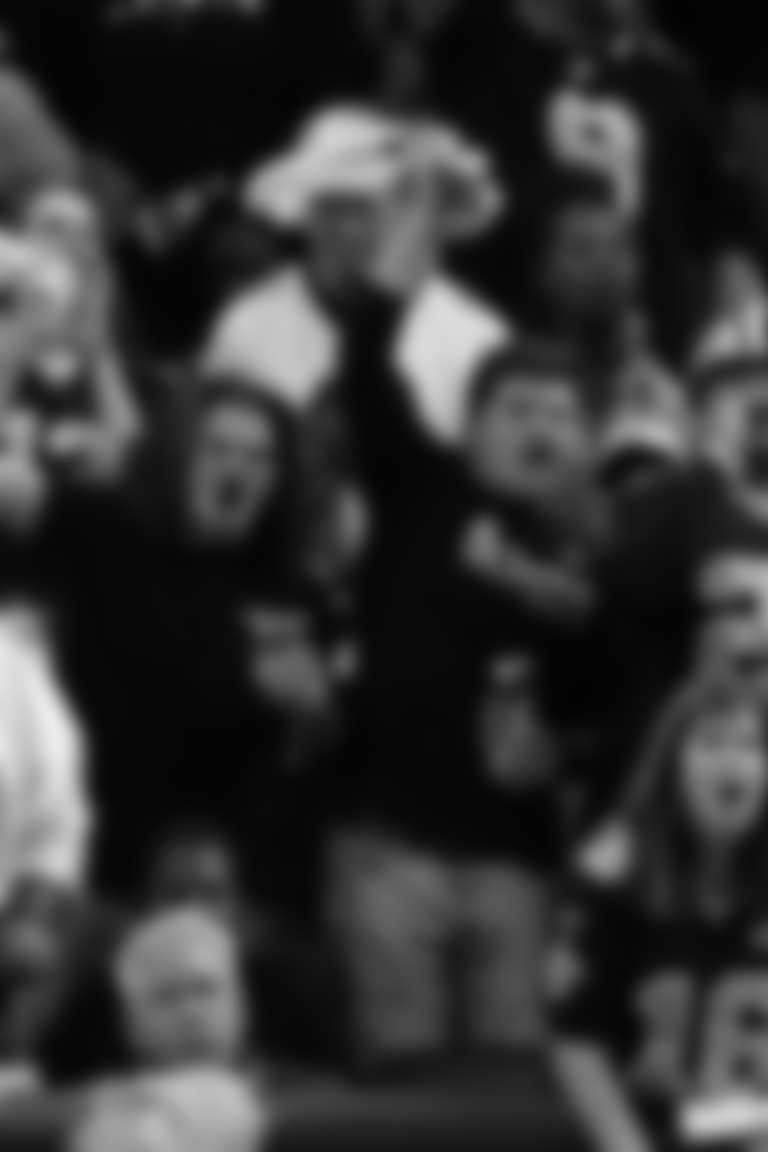New Orleans Saints Head Coach Sean Payton
Media Availability
Thursday, October 06, 2011
Opening Statement:
"Here on the notes today in regards to the injury list: T Zach Strief (right knee) did not practice, TE Dave Thomas (concussion) did not practice, WR Devery Henderson (calf) did not practice, C Olin Kreutz (left knee) was limited. And then these three players were all limited: LB Will Herring (hamstring) was limited, LB Martez Wilson (shoulder) was limited, and Jon Vilma (left knee) was limited. Devery's calf was (aggravated) yesterday in practice and we held him back. We'll see where he's at tomorrow but I'm optimistic in regards to that injury."
Can you talk about the skill set of Cam Newton you have to defend against?
"The things that you see on film and that you saw as a college player is that he has great size and strength. So from a stature standpoint he's very powerful with a very talented arm. You see the mobility and the athleticism in regards to his ability to flush, step in the pocket, move from the pocket when it gets crowded or the protection's not perfect. He has real good escape ability. He has a real strong arm and he can extend plays, which becomes real challenging. I think just as importantly as all the other things you begin to see from a young player you're seeing quickly with him is the leadership skills. He's pretty calm. It's not too big for him. All the things you try to measure when you're evaluating players and yet there's no certainty until he gets in the arena and that's the just as impressive test that you're seeing with him right now."
Your team's stats for away games are impressive: Saints are 15-5, Patriots are 11-9, Steelers are 11-9, Packers are 10-10 in the last 20 road games. Can you talk about your road game philosophy?
"I think one of the things we've tried to emphasize is a schedule and a routine that you get used to. Typically the only time when a schedule changes is when you travel west for us because when you go east it's an hour, if you're in the Central time zone it's the same. You go west we travel on a Friday. We typically travel on a Saturday. I do think there's a direct correlation with winning on the road and also being a good football team. I think part of it is the mental discipline of being able to separate the noise and separate the obstacles that come with playing in tough road environments and I think when you being to gain that confidence, and I don't know that we can point to one win, but certainly we can go as far back as '06 and point to some wins that are as significant on the road and I think a team then develops confidence in being able to handle some of the challenges and distractions that are involved with playing on the road. But I think as our team has gotten better, our road has gotten better as well. It's something that is necessary if you're going to aspire to be a real good team. You're going to have to win games on the road or otherwise you're going to end up 8-8. I think part of that's experience, par to that is this team developing into a better team and becoming more confident in playing those games."
Are you finding that teams are passing more against you this year than in the past?
"It probably would be too early to tell because we've played a couple teams that have been passing teams to begin with. After four weeks, it's hard to tell if that's a direction. We'd like to think that teams are passing against us because they're chasing a lead. Typically when you go back and you're having success and you're getting ahead in games, the rushing numbers drop dramatically because teams become one-dimensional so we'll probably in two to three more weeks get a better feel for that and hopefully that's the case. Hopefully we put ourselves in a position where teams are playing from behind and having to throw more. I don't know specifically though if we would say that's just the direction teams have gone or that's just the types of teams we've been playing."
Do you believe that a player doesn't lose his starting job due to injury?
"That's the Wally Pipp story. We typically haven't had many examples. I think there's a lot more flexibility in positions now, whether it's corner or whether it's receiver that they play, I think it's probably more pertinent when you talk about there's a handful of positions that typically get all the snaps: the offensive line, the quarterback and maybe the safety position or some of your defensive line and they're typically in a rotation. You never lose your starting position because of an injury. There are too many variables depending on if it's a six month injury or if it's a one month or two month (injury). I think that there's so much fluctuation now with the rosters and with your team. I certainly think in the case with our guys, there hasn't been a situation arise yet where it's been because a player's been injured that all of a sudden he's not a starter anymore."
What is it that you're looking for to move a guy up or down on a depth chart?
"You still see (the player) play well in a lot of practices. You might see a player excel in the kicking game or make a mistake in the kicking game and you feel like you need to get the guy more involved in the offense or defense. Sometimes a player moves up or down because the player ahead of him hasn't played as well. In other words, sometimes because of injury he gets his opportunity and he excels and now regardless of who trots out, it's always interesting because at the end of the week I always have to hand Greg Bensel who we're introducing as captains and then who we're introducing offensively and defensively. We really could introduce 17 players on offense or defense and yet we're all kind of geared to that two-back, one tight end, two wide receivers, they all run out of the tunnel. But there still is a flip card, but if you looked at our defensive line rotation, our receiver rotation, our running back rotation – who do you want to introduce? I would think that it still exists during the season. Players play well during practice. Forget the pads. You see things that begin to take place and teams have players who don't do as well and it gives an opportunity for another player to step up and of course injury. There are a lot of different ways for guys to become starters or earn more playing time and I think that's probably a better way to describe it."
When do you install your first play of the game?
"It's usually done on Saturday before the Saturday night meetings. It's normally 10, 12 or 15 (plays). We usually don't go past 15. Anywhere between 10 and 15 plays we put together."
That's all considering your starting lineup?
"Yes, for that first play. If we truly introduce our starters than the defense would know what the personnel is for the first play of the game. There are probably conservatively five or six personnel groupings that we would use in any one of those. We try to get in and out of some personnel groupings in the opening plays to see how they're defending certain looks and also to create tempo for us and to slow down tempo for the defense. We'll be in and out of 12, 21, 11, pony, 20, 22 with heavy tight end groups and those will all with some degree be the openers. And then with longer halftimes we've been able to install other openers or another sequence at the half."
Does the scheduling annoy you that Coach Doug Marrone is bringing his Syracuse team to New Orleans to play Tulane and you'll be out of town in Carolina?
"My understanding is they play Saturday and they're getting here Friday. Hopefully we'll have a chance to see Doug, maybe some of those guys he talked about possibly coming out tomorrow depending on when they get here. We just follow the scores though like most of the players do of just the different teams and I know he's done a real good job."
Could you expand on Coach Marrone?
"I think there are a group of people that are uniquely special that were a part of that first staff and that first team. Doug was a part of that coaching staff in 2006 and I usually have a pretty good memory, but he was on the Jets staff that had undergone a coaching change and there was some question as to whether he was going to be released from his contract or held to his contract. There was a period for a couple weeks where I wasn't able to talk to him, or I didn't have permission to interview him. So there was a period where there was nothing that we could do and we almost had to go in a different direction because we were beginning to put our staff together. Long story short, he was given permission. We had a chance to visit and interview. He came in as the offensive line coach and the thing about Doug that I'm sure Syracuse has seen now is he's a tireless worker, it's all about football, it's very important to him, he's passionate, and he's a great staff guy in that he gets along well with everyone in the building. That kind of compatibility aspect of being an assistant coach is critical. It's as important as your ability to coach. He was here for all the different things that we would reflect on in that first year: the challenges of being at training camp for seven weeks at Millsaps, post-Katrina of putting a team together, all the hurdles that took place that you look back on now and they're just stories. There are hundreds of them as were assembling and really starting as of new. That's kind of a group that we refer to as 'The Junction Boys.' That team and that group went through something that was really uniquely different than a normal transition and he was a part of that group and a big reason for our success."
What were your thoughts when he was thinking of taking the Syracuse job?
"It was during the '08 year that there was interest in him and I had spoken to someone at Syracuse. I think a job like that was certainly – hey, how can I help you? That was certainly a big deal to be the head coach at a university like Syracuse University, certainly his alma mater as well. So he went through that process and like anything there's a three week period of interviews and final two candidates, and I knew he got the job the night we were playing the Bears on the road and I want to say we were playing a Thursday night game, and NFL Network game, and he and I just sat in the office at Soldier Field and we talked about it and I congratulated him. We were excited. The challenge always from college to pro or pro to college is the calendars don't match. There's a sense of urgency in regards to recruiting that doesn't necessarily fit with our schedule. Both of us agreed that it would be best if he went ahead and began right away. That was easier for us because Aaron Kromer was already in the building and he was going to be our next offensive line coach. So for those last two games, Aaron became the line coach and Doug went on to Syracuse. But we had a lot of great memories and he's someone that I still stay in touch with and pull for. I think it's always nice to see someone, as a young head coach to have someone hired off your staff means you're probably beginning to put the right people together and I think all of us were excited for his opportunity."
Was he involved in scouting Jermon Bushrod and Jahri Evans?
"He was involved in really recruiting in free agency Jonathan Goodwin. Doug had a lot to do with signing Goodwin and he had kind of been a swing-guard center for the Jets. And certainly any of the linemen we signed or drafted, he was involved in that process along with the scouting department or the pro department. Jahri and Bushrod, he was involved with them. He had a big impact on our early success in '06 and I think he's someone that everyone on the staff got along well with and it was a real good fit."
Have you ever had a chance to be a head coach in college?
"When I started out, I had nine or ten years in college coaching at San Diego State, at Indiana State, back to San Diego State, Miami (Ohio), University of Illinois. My goal I think as a young college coach was to someday be a head college football coach. I think a lot of coaches this happens to and it certainly happened to me and the NFL thing kind of found you. I was getting ready to go work at Maryland and then all of a sudden had an opportunity to go interview with the Philadelphia Eagles and that was kind of out of left field. There wasn't anyone there I knew. They were looking for a new quarterback coach and they were bringing in four candidates to interview and it was unplanned. As someone young and from the Midwest, the plan was to someday maybe be the head coach of a Big Ten school. That would have been an early goal. I think it's very typical of careers, you find yourself maybe ten years later in an area that maybe wasn't what you anticipated and yet there's some adjustment and you keep going and then all of a sudden you're in the NFL. And then each year you're longer in the NFL, there's less of that vision of going back and coaching in college and certainly as an NFL assistant coach that's something you would definitely consider. It just worked out where all of a sudden 15 years later I'm in the NFL and you're further removed from the college game. I think it's fairly common for the NFL to get a college head coach or certainly hire college assistants. That happens frequently and you still see NFL coaches go to become college coaches. That exists and for me it just happened that I was in the NFL and stayed in the NFL. But as an early young coach, that was definitely the plan. You didn't think about the NFL. You thought about coaching on a college campus somewhere. That was the goal."
It seemed at one time you either thought about being a college coach or a pro coach.
"I think in the NFL, the ability to go hire an assistant from another staff is more difficult. Really the easiest way to describe it is assistant coaches on NFL teams are no different than the players on other teams if they're under contract, which most of them are. There was a time when teams were going to give them a promotion, then he would be able to leave and then that got abused because we had all these different titles. So really it's either you're under contract or you're not and there's really only one position that a coach can move to, not necessarily without permission, but can't be denied is from an assistant to become a head coach. Then '06 when we were talking about hiring Doug Marrone, without going through a bunch of different candidates but we were denied permission on a number of assistant coaches from other teams that would've been raises in promotions but the permission was denied. That being said, you have to expand your talent pool or where you're looking for coaches. History tells you that a real talented coach can be coaching on Friday night and certainly be coaching on Sundays. A real talented coach can be coaching on Saturdays and be capable of coaching on Sundays. Not every coach that's coaching on Sundays is real talented. Good coaches don't necessarily just find themselves in one league. Some of the best coaching goes on at the high school level, at the college level, and at the NFL level. They're just three different venues. Guys like Dick Vermeil, Mike Holmgren were high school history teachers or counselors that were coaches that all of a sudden ended up in college or ended up in the NFL and those are some of the unique exceptions that have coached in all three levels and that's pretty impressive. But they're no different than good teachers. They exist at our universities, at grade schools, at junior high, at high schools and some of the in the Ivy League and yet they're not just found at the Ivy League, they're found everywhere. I think that's the same for coaches."
Can you talk about Jo-Lonn Dunbar?
"He's one of those guys, we have a term, he didn't necessarily start out on third base. He started out all the way at home plate and had to round all the bases to get where he's at. He was a free agent. Each year he's been one of those guys that's provided versatility. He's started 19 different games since he's been here. He's played special teams. He's played Sam, he's played Mike, and he's played Will. He's had versatility and he's remained healthy. When you sign a free agent and a guy has done, that he's a guy that has toughness, handles disappointment and battles back and competes. I think it's served him well."



















